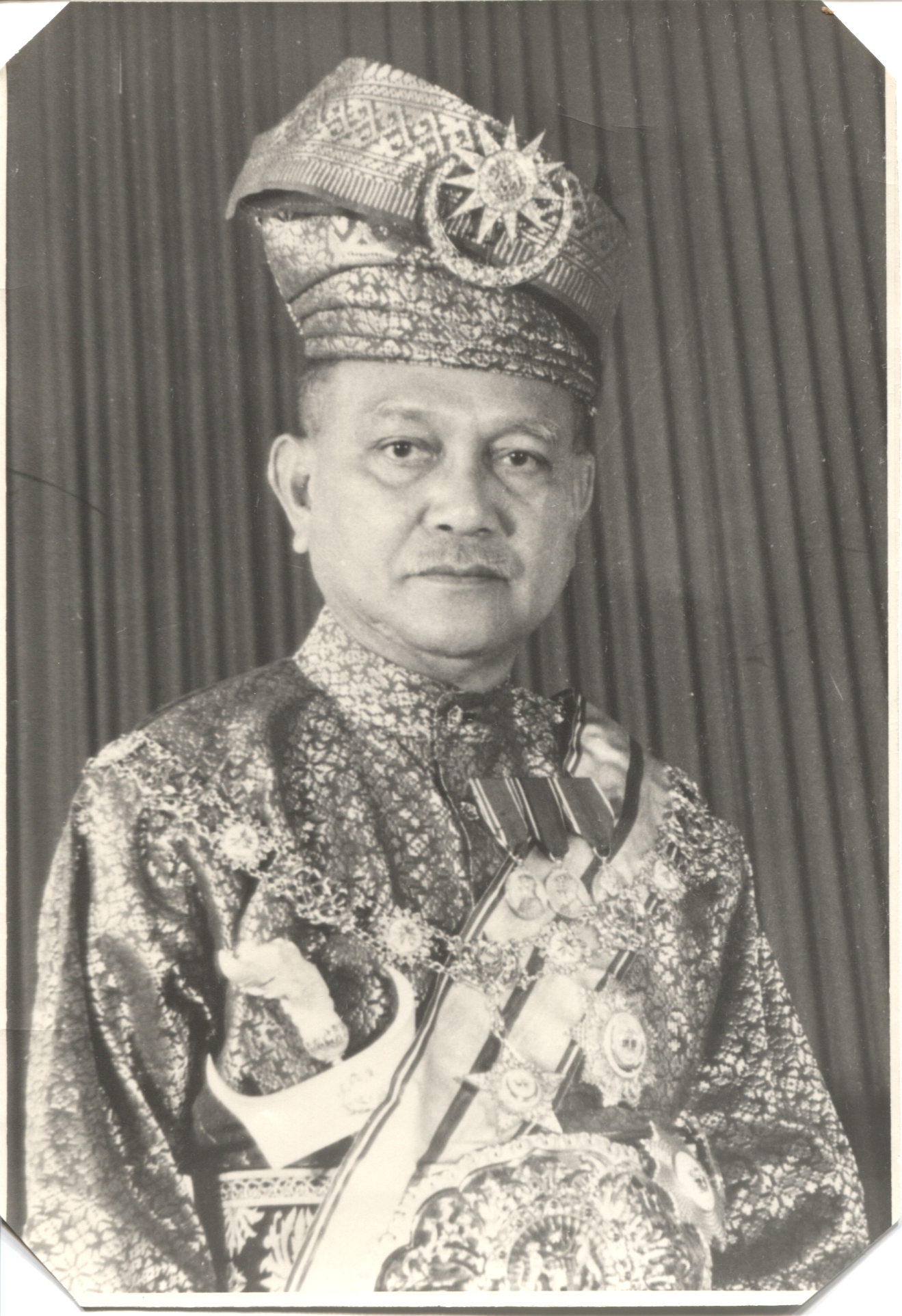Abdul Rahman Al-Banoubi: The Extraordinary Egyptian Scholar And Astronomer

Rashed Abdul Rahman Al Rashed & Sons Group - The Top 100 Arab Family - Source www.forbesmiddleeast.com
Through rigorous analysis and extensive research, we have compiled this comprehensive guide to introduce you to Abdul Rahman Al-Banoubi and his extraordinary achievements. Delve into his life, unravel his discoveries and contributions, and gain insights into the legacy he left behind.
| Key Attributes | Abdul Rahman Al-Banoubi |
|---|---|
| Birth and Origin | Born in Egypt in the 10th century |
| Areas of Expertise | Astronomy, Mathematics, Medicine, and Philosophy |
| Major Contributions | Developed an advanced model for planetary motion, conducted groundbreaking research in optics, and made significant advancements in medical practices |
| Legacy | Influenced generations of scholars and scientists, his work continues to inspire modern-day researchers |
FAQs on Abdul Rahman Al-Banoubi
Abdul Rahman Al-Banoubi, an extraordinary Egyptian scholar and astronomer, left an indelible mark on the development of astronomy in the 13th century. His contributions to the field were significant, and his legacy continues to inspire awe and admiration. This FAQ section aims to address common queries and misconceptions regarding Al-Banoubi's life and work.

Rashed Abdul Rahman Al Rashed & Sons Group (RAR Group) - Top 100 Arab - Source www.forbesmiddleeast.com
Question 1: When and where was Abdul Rahman Al-Banoubi born?
Abdul Rahman Al-Banoubi was born in the year 1260 CE in the city of Banoub, located in southern Egypt.
Question 2: What were his major astronomical discoveries?
Al-Banoubi made several important astronomical observations, including a calculation of the Earth's circumference with remarkable accuracy. He also observed the motion of the planets and identified errors in existing astronomical tables, providing more precise data for astronomical calculations.
Question 3: How did Al-Banoubi contribute to the development of astrolabes?
Al-Banoubi played a pivotal role in enhancing the design and functionality of astrolabes. He developed a new method for constructing astrolabes, making them more accurate and user-friendly. He also added new features to astrolabes, allowing astronomers to perform a wider range of calculations.
Question 4: What was his role in establishing the Maragha observatory?
Al-Banoubi joined the team of astronomers working at the Maragha observatory, which was founded by Nasir al-Din al-Tusi in present-day Iran. He collaborated on astronomical research and contributed to the observatory's significant scientific achievements.
Question 5: What were his other scholarly interests?
In addition to his astronomical pursuits, Al-Banoubi was also a mathematician and a prolific writer. He authored several books and treatises on astronomy, mathematics, and other scientific topics, which had a profound impact on later scholars.
Question 6: How is Al-Banoubi's legacy preserved today?
Abdul Rahman Al-Banoubi's legacy continues to be celebrated in modern astronomy. A lunar crater is named in his honor, and his contributions to astronomy are recognized and appreciated by scholars worldwide. His work serves as a testament to the ingenuity and dedication of scholars who have dedicated their lives to understanding the celestial realm.
The contributions of Abdul Rahman Al-Banoubi to astronomy are a source of inspiration and serve as a reminder of the rich scientific heritage of the Islamic Golden Age. His legacy continues to inspire aspiring astronomers and scientific minds.
Transition to the next article section: To explore another aspect of Al-Banoubi's remarkable life and work, please proceed to the next section.
Tips
Discover essential insights from the extraordinary Egyptian scholar and astronomer, Abdul Rahman Al-Banoubi, to enhance your understanding of astronomy and its historical significance.

Abdul-rahman-name-in-arabic-calligraphy Calligraphy Words,, 56% OFF - Source www.micoope.com.gt
Tip 1: Embrace Observational Astronomy
Al-Banoubi, a renowned observer, emphasized the importance of systematic celestial observations. By carefully tracking the movements of stars and planets, he made significant contributions to our understanding of the Earth's motion and the solar system.
Tip 2: Study Ancient Astronomical Texts
Al-Banoubi's work was heavily influenced by earlier astronomers. By studying ancient texts from Greece, India, and Persia, he built upon existing knowledge and expanded our understanding of celestial phenomena.
Tip 3: Utilize Mathematical Models
Al-Banoubi recognized the power of mathematics in astronomy. Through trigonometric calculations and geometric models, he developed accurate astronomical tables that aided navigators and scientists for centuries.
Tip 4: Calibrate Astronomical Instruments
The precision of astronomical observations heavily relies on the accuracy of instruments. Al-Banoubi emphasized calibrating astrolabes, quadrants, and other devices regularly to ensure reliable measurements.
Summary
By following these tips, aspiring astronomers can gain valuable insights from the legacy of Abdul Rahman Al-Banoubi. His contributions to observational astronomy, ancient text analysis, mathematical modeling, and instrument calibration laid the foundation for modern astronomy.
Abdul Rahman Al-Banoubi: The Extraordinary Egyptian Scholar And Astronomer
Abdul Rahman Al-Banoubi was an exceptional Egyptian scholar and astronomer whose contributions shaped the course of astronomy. His profound observations, innovative instruments, and groundbreaking calculations left an enduring legacy in the scientific world.
- Pioneering Observation: Al-Banoubi meticulously recorded celestial events, including the positions of stars and planets, contributing to the development of accurate astrological tables.
- Innovative Astrolabes: He refined the design of astrolabes, portable instruments used for celestial navigation and timekeeping, making them more precise and versatile.
- Trigonometric Calculations: Al-Banoubi's advanced trigonometric techniques enabled him to calculate the distance to the Moon with remarkable accuracy.
- Lunar Eclipse Model: He developed a groundbreaking model to predict the timing and duration of lunar eclipses, demonstrating his deep understanding of celestial mechanics.
- Influence on Medieval Europe: Al-Banoubi's works were translated into Latin, profoundly influencing the scientific advancements of medieval Europe and beyond.
- Legacy of Precision: His emphasis on accuracy and meticulous observation set the standard for future astronomers, ensuring the reliability of celestial knowledge for generations to come.

Abdul Rahman Of Negeri Sembilan - Abdul Rahman, Yang di-Pertuan Besar - Source robetsakuraas.blogspot.com
Al-Banoubi's legacy extends beyond his specific discoveries. His unwavering pursuit of knowledge and dedication to scientific rigor inspired generations of scholars and astronomers. By combining theoretical understanding with practical observations, he not only advanced astronomy but also laid the foundation for the scientific method that has revolutionized our understanding of the world.

Tunku Abdul Rahman White Transparent, Tunku Abdul Rahman For Malaysia - Source pngtree.com
Abdul Rahman Al-Banoubi: The Extraordinary Egyptian Scholar And Astronomer
Abdul Rahman Al-Banoubi was a 10th-century Egyptian scholar and astronomer who made significant contributions to the fields of mathematics, astronomy, and astrology. He is best known for his work on the astrolabe, a device used to calculate the position of the sun and stars. Al-Banoubi also wrote several books on astronomy and astrology, including the Kitab al-Zij (Book of Tables), which was one of the most influential astronomical works of its time.

Tunku Abdul Rahman Color Illustration Vector, Tunku Abdul Rahman - Source pngtree.com
Al-Banoubi's work had a profound impact on the development of astronomy and astrology in the Islamic world. His astrolabe was used by sailors and astronomers for centuries, and his books were translated into Latin and used by European scholars. Al-Banoubi's work also influenced the development of astronomy in China and India.
Al-Banoubi was a brilliant scholar who made significant contributions to the fields of mathematics, astronomy, and astrology. His work had a profound impact on the development of these fields in the Islamic world and beyond.
Conclusion
Abdul Rahman Al-Banoubi was a remarkable scholar who made significant contributions to the fields of mathematics, astronomy, and astrology. His work had a profound impact on the development of these fields in the Islamic world and beyond. Al-Banoubi's legacy continues to inspire scholars and scientists today.
Al-Banoubi's work is a testament to the power of human curiosity and the importance of scholarship. His dedication to learning and his willingness to challenge the established norms of his time led to groundbreaking discoveries that continue to shape our understanding of the world.
Pulp Fiction: An Unforgettable Cinematic Masterpiece, Upcoming Al Ahly FC Matches: Fixtures, Dates, And Preview, Ahmed Al Ashe, حسن مظهر: رائد التحرير الصحفي في مصر, Bono De Desarrollo Humano 2025: Beneficios, Requisitos Y Guía De Registro, Clash Of The Titans: Man City And Chelsea Battle For Premier League Dominance, Ester Ledecká: Olympic Champion In Skiing And Snowboarding, Patricie Pagáčová: Czech Actress, Model, And Television Presenter, Apocalypse Clock: Humanity's Countdown To Extinction, Internal Commotion Decree In Colombia: A Comprehensive Overview,